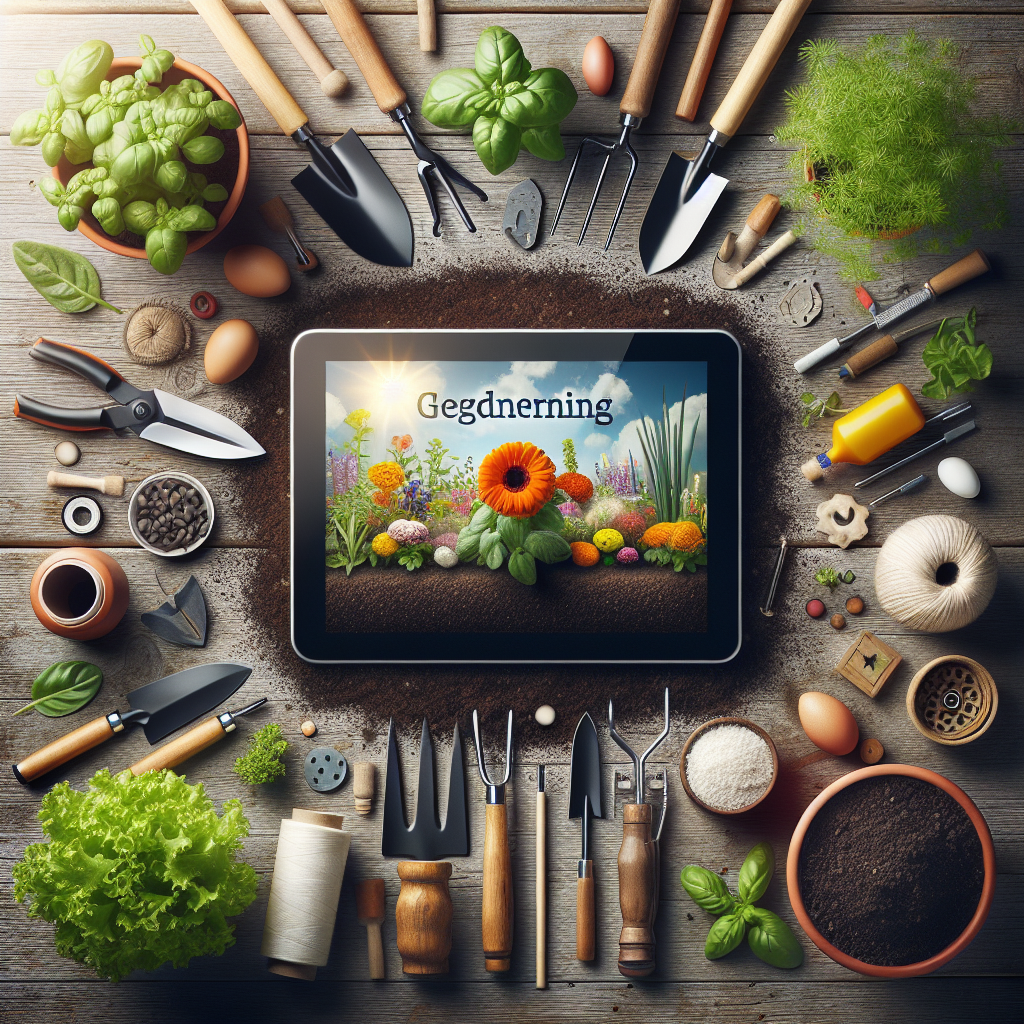Introduction to Gardening for Beginners
Gardening can be a rewarding and therapeutic activity for individuals looking to connect with nature and cultivate their own piece of greenery. For beginners, embarking on a gardening journey may seem daunting, but with the right knowledge and resources, it can be a fulfilling experience.
Importance of Gardening for Novices
According to Mary H. Meyer, Extension Horticulturist at the University of Minnesota, 'Gardening provides a sense of accomplishment and satisfaction, offers a connection to the natural world, and can be a great stress-reliever.' Beginners can benefit from the physical activity, mental relaxation, and the joy of watching their garden flourish over time.
Overview of Basic Gardening Principles
Master Gardener Susan Patterson emphasizes the importance of understanding basic gardening principles such as plant selection, soil preparation, proper watering techniques, and pest management. These principles form the foundation of a successful garden and are essential for beginners to grasp.
Selecting the Right Plants for Your Garden
Understanding Plant Hardiness Zones
One crucial aspect of plant selection is considering the plant hardiness zones, which help determine which plants are most likely to thrive in a particular region. The United States Department of Agriculture (USDA) provides a Plant Hardiness Zone Map that divides the country into different zones based on average winter temperatures.
Choosing Plants Based on Sunlight and Soil Conditions
Garden expert Mike McGroarty advises beginners to assess their garden's sunlight exposure and soil conditions before selecting plants. Some plants thrive in full sun, while others prefer shade. Similarly, certain plants require well-draining soil, while others thrive in moisture-retentive soils.
Essential Gardening Tools for Beginners
Tools for Soil Preparation
Before planting, it is essential to prepare the soil adequately. Tools like a garden fork, spade, and hoe are indispensable for breaking up compacted soil, removing weeds, and incorporating amendments such as compost or peat moss.
Tools for Planting and Maintenance
When it comes to planting and maintaining a garden, some essential tools include a trowel for planting, pruners for trimming and shaping plants, and a watering can or hose for irrigation. These tools help beginners carry out essential gardening tasks with ease.
Watering and Fertilizing Strategies
Proper Watering Techniques
Overwatering or underwatering plants can be detrimental to their health. Horticulture expert Tonya Barnett recommends watering plants deeply but infrequently to encourage deep root growth. Using a soaker hose or drip irrigation system can help deliver water directly to the plant's root zone.
Importance of Fertilizing and Types of Fertilizers
Fertilizing is essential to provide plants with the necessary nutrients for healthy growth. There are various types of fertilizers, including organic and synthetic options. Master Gardener Gwen Bruno suggests using slow-release fertilizers to ensure a continuous nutrient supply to plants.
Dealing with Common Garden Pests and Diseases
Identifying and Managing Pest Infestations
Garden pests like aphids, slugs, and caterpillars can wreak havoc on a garden if left unchecked. Entomologist Susan Littlefield recommends identifying pests early and using natural remedies like neem oil or insecticidal soap to control infestations without harming beneficial insects.
Preventing and Treating Common Plant Diseases
Plant diseases, such as powdery mildew and blight, can pose a threat to garden plants. Horticulturalist Jessica Walliser advises practicing good garden hygiene, such as cleaning tools and removing diseased plant parts, to prevent the spread of diseases. Organic fungicides can also help manage fungal infections.
Case Study: Successful Beginner Gardener's Journey
Planning and Designing the Garden
In a case study by Gardening Magazine, a novice gardener outlines their journey from planning to creating a successful garden. The gardener researched plant selections, designed garden beds, and took into account sunlight and soil conditions before planting, showcasing the importance of thorough planning.
Implementation and Maintenance of the Garden
The beginner gardener diligently watered, fertilized, and monitored their plants for pests and diseases. Regular maintenance tasks, such as weeding and pruning, were carried out to ensure the garden's health and vitality. This dedication resulted in a flourishing garden that brought joy and satisfaction.
Conclusion: Encouraging Sustainable Gardening Practices
Benefits of Gardening for Beginners
Gardening offers numerous benefits for beginners, including improved physical health, mental well-being, and a deeper connection to the environment. Cultivating a garden provides a sense of accomplishment and promotes relaxation, making it a fulfilling hobby for individuals of all ages.
Importance of Environmental Consciousness in Gardening
As horticulturalist Tanya Anderson highlights, sustainability should be at the core of gardening practices. Employing eco-friendly methods, such as composting kitchen scraps, using rainwater harvesting systems, and planting native species, can contribute to a healthier ecosystem and reduce environmental impact.
Call to Action: Joining Gardening Workshops or Connecting with Local Gardening Clubs
To continue learning and growing as a gardener, consider joining gardening workshops or connecting with local gardening clubs. These platforms offer opportunities to exchange knowledge, seek advice from experienced gardeners, and participate in community gardening projects, fostering a sense of camaraderie and promoting sustainable gardening practices.
Topics




